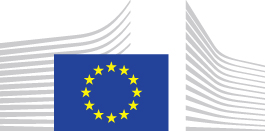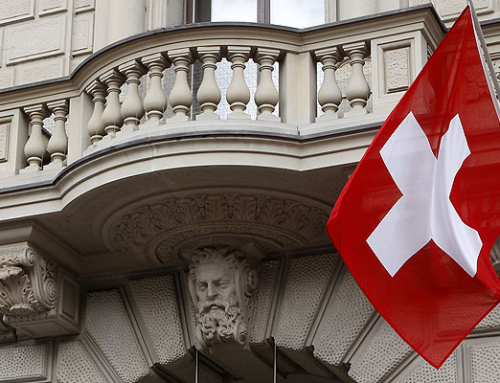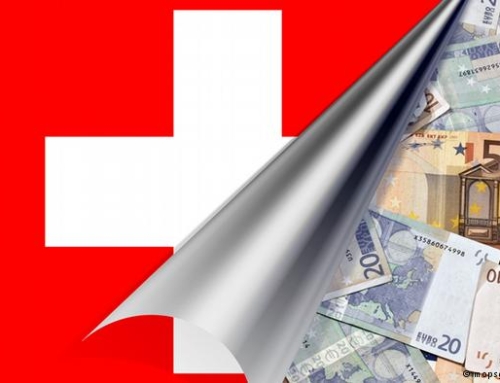Brussels, 15 October 2014
What is the automatic exchange of information for tax purposes?
The automatic exchange of information is regarded as the best system for ensuring that national tax authorities can assess and collect the taxes they are due on income and capital that their residents have abroad.
Under this system, Member States collect data on income earned in their territory by non-resident individuals. They then automatically transmit this data to the authorities where the individual resides, so that it can be taxed in line with the Member State of residence’s rules.
These exchanges take place through a secure IT network (the CCN system) which ensures that EU data protection rules are fully respected. The information is exchanged using standard computerised formats that the Commission has developed in close cooperation with the Member States.
Why is this best done at EU level?
An EU framework of automatic exchange of information is needed both from an internal market perspective and for reasons of efficiency and effectiveness:
It will ensure a coherent, consistent and comprehensive approach to automatic exchange of information within the Single Market, which is fully in line with the new OECD Global Standard (see below). As such, it will avoid loopholes and overlaps that could be created by a patchwork of national or bilateral approaches.
It will provide legal certainty for tax administrations and economic operators.
It will ensure equal treatment of all different types of assets under EU law, thereby avoiding undesirable reallocation of portfolios.
It will save costs and minimise burdens for tax administrations and economic operators.
What was the breakthrough agreement at the October 2014 ECOFIN regarding automatic information exchange?
Member States agreed on a Commission proposal to apply the widest possible scope of automatic exchange within Europe, to mirror the global standard of automatic information exchange agreed by the G20. In practice, this means that, from 2017, Member State tax authorities will automatically exchange information with each other on most categories of income and capital held by private individuals and certain entities. It was agreed Austria would be given an additional year to apply the new rules, to allow it sufficient time to make the necessary technical adaptations. However, Austria also committed to consult with industry to see if it would be possible for it to start applying this wide scope automatic exchange earlier than 2018.
The agreed Directive means that there will be full tax transparency between EU Member States. Crucially, this legislation will ensure that the EU has a solid legal framework to apply the new global standard of automatic exchange of information. As such, it ensures that European financial institutions and tax administrations will have full certainty and fewer compliance costs.
What developments have there been on automatic exchange of information in recent years?
The EU was the first region in the world to introduce the automatic exchange of information as a key tool to fight tax evasion. Automatic exchange of information was first introduced (on a limited scope) in the EU in 2005, through the Savings Tax Directive. Under this Directive, Member States automatically exchange information with each other on the interest that non-residents receive from savings in their territory. Austria and Luxembourg have a transitional period under which they are allowed to apply a withholding tax instead of engaging in automatic exchange.
In March 2014, after many years of negotiations, all 28 Member States agreed to a revised Savings Directive, which closed loopholes in the legislation and extended its scope. The major significance of this agreement at the time was that every Member State – including Luxembourg and Austria – was now committed to the automatic exchange of information on savings income.
Meanwhile, important developments were also occurring internationally, most notably the development of a Global Standard of automatic exchange of information by the OECD. This new international standard, which the EU played an active part in helping to develop, will ensure full tax transparency and cooperation between tax administrations worldwide in fighting tax evasion. The Global Standard was agreed by G20 Finance Ministers in February 2013 (see STATEMENT/14/16) and the first countries will begin to exchange information under this new standard of tax transparency from 2017.
In response to this new Global Standard, and driven by a long-time ambition to further increase tax transparency in Europe, the Commission proposed a revision to the Administrative Cooperation Directive in June 2013. This proposal – which was agreed by EU Finance Ministers at ECOFIN this week – aims to secure the widest possible scope for the automatic exchange of information between the 28 Member States. It also serves the important purpose of creating a legislative framework for EU Member States to apply the Global Standard of automatic exchange of information amongst themselves.
Is the Savings Directive still relevant, given the new, full-scope automatic exchange now agreed by Member States?
The revised Administrative Cooperation Directive, agreed by Ministers yesterday, covers a wide scope of income and capital – including most of what is covered by the revised Savings Directive. Therefore, in order to have just one standard of automatic exchange and to avoid legislative overlaps, the Commission will now consider the repeal of the Savings Directive. Coordination of the likely repeal of the Savings Directive with the introduction of the revised Directive on Administrative Cooperation will ensure that we do not create or leave any loopholes for tax evaders. The Administrative Cooperation Directive is comprehensive and largely covers all areas that had previously been covered by the Savings Directive.
How has the Commission promoted the automatic exchange of information internationally?
The EU has been the long-time pioneer of automatic exchange of information internationally. Since the Savings Tax Directive entered into force in 2005, it was, for a long time, the only region in the world to apply this higher standard of information exchange for tax purposes. It used this position as global fore-runner to also push for higher standards of tax good governance internationally.
As the OECD worked to make the automatic exchange of information the global standard, the EU actively engaged in this development, contributing both experience and expertise. The Commission also worked with Member States to ensure that there was a strong, unified EU position, pushing to secure the highest possible international standards of tax good governance worldwide. This reflects the call of the May 2013 European Council to give priority to extending the automatic exchange of information at international level, as well as at EU level.
In addition to these global developments, the Commission has also been negotiating stronger tax agreements with Switzerland, San Marino, Andorra, Monaco and Liechtenstein. Initially the aim of these negotiations was to ensure that these countries applied a level of transparency equivalent to that applied by Member States under the revised Savings Taxation Directive. However, international developments – most notably the agreed Global Standard for automatic exchange of information – mean that a much more ambitious outcome of these negotiations is now expected. Switzerland has recently announced that it is ready to negotiate applying the Global Standard with the EU. This widest possible automatic exchange of information is very much in line with what the EU is now working for in its negotiations with these 5 countries.








Leave A Comment